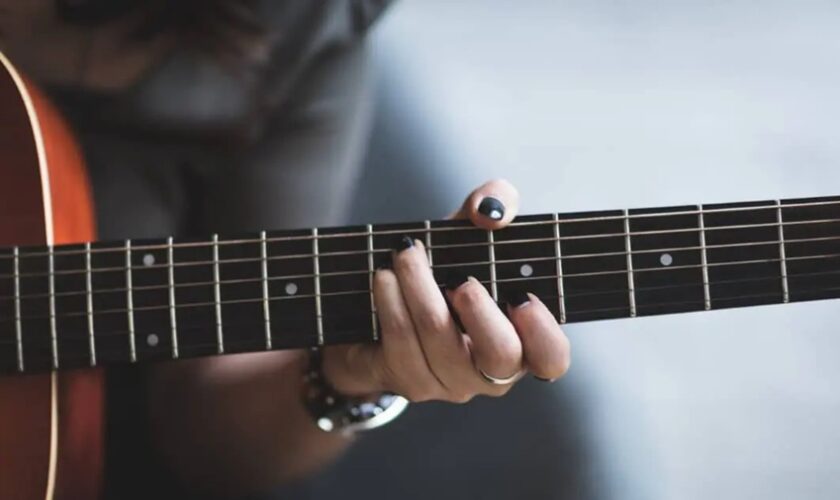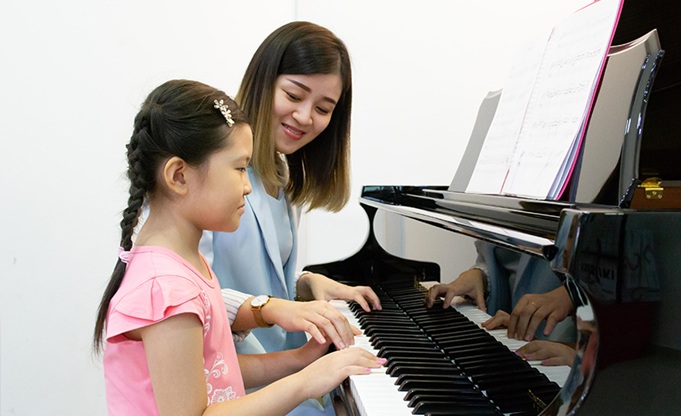If you’ve ever dreamed of playing electrifying solos, grooving to blues rhythms, or jamming to your favourite rock tunes, electric guitar lessons Singapore provide the perfect gateway to mastering this dynamic instrument. Whether you’re picking up a guitar for the first time or refining your skills, structured lessons can fast-track your progress and build your confidence as a musician.
Why Learn the Electric Guitar?
The electric guitar isn’t just an instrument—it’s a voice, a creative outlet, and a tool for storytelling through sound. Here’s why learning it can be a game-changer:
✔ Versatile Across Genres – Rock, blues, jazz, funk, pop—you can play almost anything.
✔ Improves Coordination & Dexterity – Develops fine motor skills and hand-eye coordination.
✔ Fuels Creativity – Learn how to improvise, compose, and experiment with sounds.
✔ Plays Well with Others – Jamming with others strengthens your timing, rhythm, and musical intuition.
✔ Powerful Sound Control – Effects pedals and amp settings let you shape a unique tone.
“The electric guitar isn’t just about playing notes—it’s about expressing emotions, attitude, and energy.”
Choosing the Right Electric Guitar Lessons in Singapore
Before diving in, it’s important to choose lessons that suit your style, skill level, and learning preferences.
1. Private vs. Group Lessons
Private Lessons – Personalised instruction tailored to your progress.
Group Classes – A social way to learn, though with less individual attention.
2. Skill Levels & Course Focus
Beginner – Learn essential chords, power chords, and simple riffs.
Intermediate – Master lead guitar techniques, scales, and rhythm variations.
Advanced – Dive into complex solos, intricate fingerpicking, and advanced theory.
3. Learning Styles & Music Genres
Rock & Metal – Focuses on distortion, speed picking, and palm muting.
Blues & Jazz – Teaches expressive bends, smooth transitions, and improvisation.
Pop & Indie – Highlights clean tones, rhythm strumming, and melodic lines.
4. Choosing an Instructor
Look for experienced teachers who can tailor lessons to your goals.
Ensure the course includes a mix of theory, technique, and creative exercises.
What to Expect in Your First Guitar Lesson
Guitar Setup & Posture – Holding and handling your instrument correctly.
Basic Chords & Strumming – Learning fundamental open chords and rhythm patterns.
Introduction to Power Chords – A must for rock and punk styles.
Finger Exercises & Picking Techniques – Developing speed and precision.
Playing Your First Riff – Putting everything together in a short melody.
Tip: Regular practice, even just 20-30 minutes a day, makes a huge difference in skill progression.
Cost of Electric Guitar Lessons in Singapore
Lesson fees vary depending on instructor expertise, class format, and lesson duration. Here’s an estimate:
💰 Beginner Private Lessons – S$50 to S$90 per session
💰 Intermediate & Advanced Lessons – S$90 to S$150 per session
💰 Group Classes – S$30 to S$60 per session
💰 Online Lessons – S$20 to S$50 per session
Some instructors and schools offer package deals for long-term commitments.
Essential Gear for Learning Electric Guitar
🎸 Electric Guitar
Beginners can start with an entry-level model before upgrading.
🎸 Amplifier
Necessary for hearing your sound with proper tone and volume.
🎸 Guitar Picks
Affects playing attack and control.
🎸 Guitar Strap
Provides comfort and stability for standing play.
🎸 Effects Pedals
Optional, but great for experimenting with unique sounds.
🎸 Tuner & Metronome
Helps maintain accurate pitch and rhythm.
Tip: Experimenting with different tones and effects keeps practice sessions exciting.
Common Challenges & How to Overcome Them
🎶 Finger Pain
Calluses will develop over time, reducing discomfort.
🎶 Barre Chord Struggles
Strengthen hand muscles through grip exercises.
🎶 Timing Issues
Practising with a metronome improves rhythm consistency.
🎶 Slow Progression
Focus on small, steady improvements instead of rushing.
🎶 Performance Anxiety
Start playing for close friends before taking on larger audiences.
How Long Does It Take to Learn the Electric Guitar?
Progress depends on dedication, practice frequency, and natural ability:
1-3 Months – Learn basic chords, riffs, and strumming patterns.
6-12 Months – Get comfortable with power chords, scales, and simple solos.
1-2 Years – Develop fluency in lead guitar techniques and improvisation.
3+ Years – Gain professional-level confidence and stylistic mastery.
“Improvement is all about consistency—small daily efforts lead to big results.”
Maximising Your Guitar Lessons
✔ Set Clear Goals
Define what you want to achieve, whether it’s learning a song or writing your own music.
✔ Establish a Practice Routine
Short, regular sessions are more effective than long, infrequent ones.
✔ Play with Others
Jamming helps develop timing, adaptability, and stage confidence.
✔ Record Yourself
Listening back helps identify strengths and areas for improvement.
✔ Enjoy the Process
Keep things fun by exploring different styles and techniques.
Final Thoughts: Start Your Electric Guitar Journey Today
Signing up for electric guitar lessons Singapore is the first step to unlocking a new world of musical possibilities. Whether your goal is to play in a band, create original music, or simply have fun, learning the electric guitar will open doors to endless creativity and expression.



